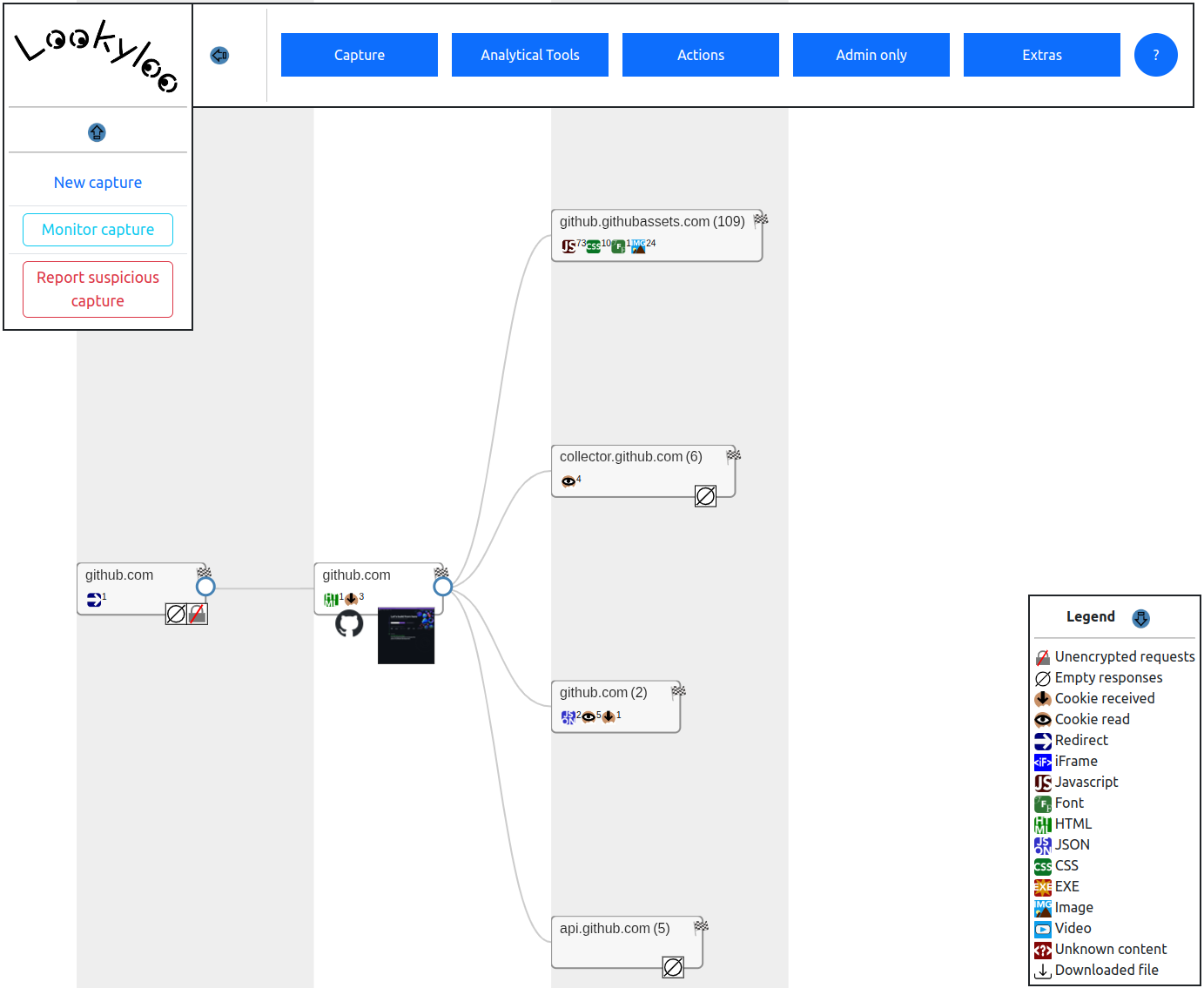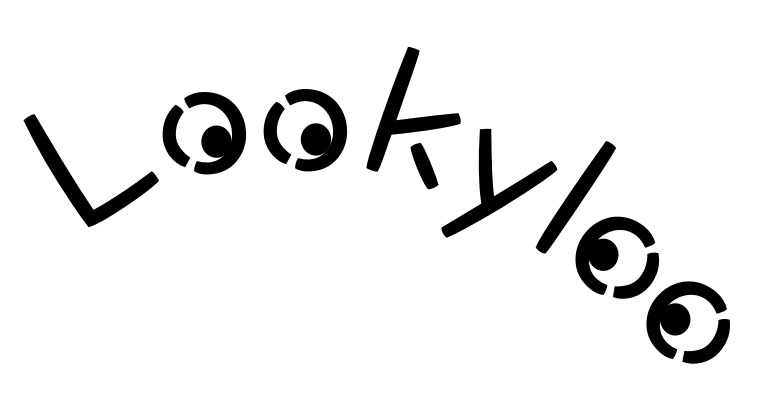|
|
||
|---|---|---|
| .github | ||
| bin | ||
| cache | ||
| config | ||
| contributing | ||
| doc | ||
| etc | ||
| indexing | ||
| known_content | ||
| known_content_user | ||
| lookyloo | ||
| tools | ||
| user_agents | ||
| website | ||
| .dockerignore | ||
| .gitignore | ||
| .pre-commit-config.yaml | ||
| Dockerfile | ||
| LICENSE | ||
| README.md | ||
| SECURITY.md | ||
| code_of_conduct.md | ||
| docker-compose.yml | ||
| poetry.lock | ||
| pyproject.toml | ||
| setup.py | ||
README.md
Lookyloo is a web interface that captures a webpage and then displays a tree of the domains, that call each other.
What's in a name?!
Lookyloo ...
Same as Looky Lou; often spelled as Looky-loo (hyphen) or lookylou
1. A person who just comes to look.
2. A person who goes out of the way to look at people or something, often causing crowds and disruption.
3. A person who enjoys watching other people's misfortune. Oftentimes car onlookers that stare at a car accidents.
In L.A., usually the lookyloos cause more accidents by not paying full attention to what is ahead of them.
Source: Urban Dictionary
No, really, what is Lookyloo?
Lookyloo is a web interface that allows you to capture and map the journey of a website page.
Find all you need to know about Lookyloo on our documentation website.
Here's an example of a Lookyloo capture of the site github.com

REST API
The API is self documented with swagger. You can play with it on the demo instance.
Installation
Please refer to the install guide.
Python client
pylookyloo is the recommended client to interact with a Lookyloo instance.
It is avaliable on PyPi, so you can install it using the following command:
pip install pylookyloo
For more details on pylookyloo, read the overview docs, the documentation of the module itself, or the code in this GitHub repository.
Contributing to Lookyloo
To learn more about contributing to Lookyloo, see our contributor guide.
Code of Conduct
At Lookyloo, we pledge to act and interact in ways that contribute to an open, welcoming, diverse, inclusive, and healthy community. You can access our Code of Conduct here or on the Lookyloo docs site.
Support
- To engage with the Lookyloo community contact us on Gitter.
- Let us know how we can improve Lookyloo by opening an issue.
- Follow us on Twitter.
Security
To report vulnerabilities, see our Security Policy.
Credits
Thank you very much Tech Blog @ willshouse.com for the up-to-date list of UserAgents.
License
See our LICENSE.
